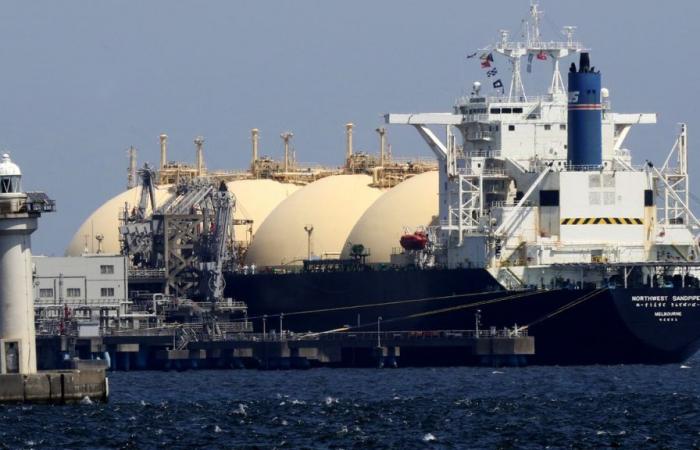For the first time, the European Union has also decided to target Russia’s main source of revenue, gas, with its sanctions. The fourteenth package of anti-Kremlin measures approved by 27 member states, including Hungary, includes a ban on Russian ships re-exporting liquefied natural gas (LNG) from European ports to other destinations, mainly Asia. According to calculations by the Belgian NGO Bond Better Environmentthis measure will affect a source of income for Moscow which between 2022 and 2023 reached around 3.4 billion euros.
To better understand how the sanction works, we must start from the Jamal peninsula, in western Siberian Russia: here is the giant Yamal LNG hydrocarbon field, which produced in 2023 around 27.6 billion cubic meters of LNG. The majority of this gas (16.2 billion) is imported from EU countries, a flow which has not been sanctioned. The rest is destined for East Asian markets, including China.
But to get to Asia, Russian ships have two routes: one direct through the Northeast Passage, that is to say through the Arctic Ocean, the other which passes through the ports of Northern Europe, where what is called re-export to Asia takes place. The European route, although longer, is the preferred one in winter, since crossing the Arctic in this season involves considerable additional costs due to the ice and the need to use special ships to clear the passage (via the EU, icebreakers load LNG onto smaller ships). So far, Russia has distributed its flows equally between the two routes. But now, with the new sanctions launched by the EU, it will only have to rely on the Arctic route.
The measure, it must be said, will not affect the entire gas trade between Moscow and European countries: gas pipelines continue to pump blue gold to Austria and Hungary, while the cessation of re-exports should not affect LNG imports too much. in the EU, which generated revenues for Moscow of around 8 billion euros in 2023.
This measure, however, constitutes a new blow to the Russian economy, which is beginning to show signs due to Western sanctions and the continuation of the war. The Central Bank of Moscow is finding it increasingly difficult to contain inflation, despite the continued rise in interest rates. Facing a severe labor shortage, Russian companies are competing for workers by raising wages. But that’s not enough to fill the workforce gap. The war economy and closed relations with the West are also slowing technological development, which could have serious consequences for the country’s growth in the future.
In this context, the other sanctions introduced by the EU in the new package should not be underestimated: the obligation for European companies to trace the goods they market abroad is reinforced, to prevent they do not end up in Russia through intermediaries from third countries. In addition, restrictions have been introduced against financial institutions from third countries that favor this type of intermediation. These are measures aimed at preventing the arrival in Moscow of fundamental technologies for civilian industry, but also for the war industry, such as microprocessors.






